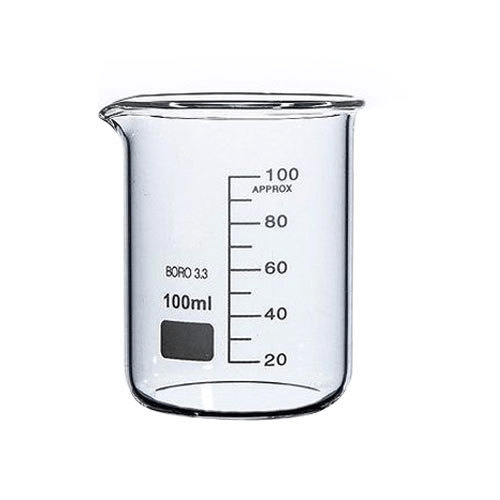What are the particles in an ionic solid?
Positive Metal cations + Negative Non-Metals anions
What particles are molecular materials/substances made of?
molecules
What particles are metallic materials made of?
Postive metal cations and a 'sea' of delocalised electrons
What particles are covalent network materials made of?
Atoms (non-metal ones)
Identify the metallic materials in this list
Sodium chloride
Iron
Methane
Cobalt
iron and cobalt
What is the postcode for Porirua's CBD?
5024
What are ionic bonds?
Electrostatic attraction between positive metal cations and negative non-metal anions
What are the forces of attraction in a molecular substance?
Weak intermolecular bonds between the molecules
What is the force of attraction in a metallic material?
metallic bond (electrostatic attraction between positive metal cations and the 'sea' of delocalised electrons)
What is the force of attraction in a covalent network solid?
Covalent bonds
What are some physical properties of graphite that make it suitable to be used as the 'lead' in pencils?
* Solid at room temperature, slippery - layers of graphite slide over each other onto the page
How many chromosomes do most humans have in each of their body cells?
46
Do ionic solids conduct electricity when in a solid state? Explain
No - ions are held in fixed positions in a 3D lattice and cannot move.
In order to conduct, you need charged particles free to move.
Describe and justify the melting points of molecular materials
Low melting points - the weak intermolecular forces between the molecules do not take much heat energy to break
Metallic bonds are often described as non-directional - what does this mean?
As the valence electrons are mobile the metallic bond will form between the + cations and the free moving electrons in any/all directions
Describe the structure and bonding in a 2D covalent network.
In graphite/graphene each C atom is covalently bonded to 3 other carbon atoms in a 2D lattice. This means there is a free moving electron/atom free to move through the lattice
What are some physical properties of aluminium that make it suitable to be used in drink cans?
Lightweight
Solid at room termperature
Insoluble
Unreactive with acids
What is the name of the pigment that makes plants green?
Chlorophyll
Explain why Ionic solids are brittle?
When a lattice structure is hit, the force lines the same charged ions up. Like charges repel each other, splitting the lattice, completely shattering it.
How would you identify if it is a molecular material using the periodic table?
Molecular substances are made of non-metal atoms
Describe the structure and bonding in a metallic solid
Metallic solids: Metal Cations are arranged within a 3D lattice structure in a fixed position and negative delocalised valence electrons are free to move through the whole structure. The structure is held together by strong metallic bonds (electrostatic attraction between positive metal cations and the negative valence electrons)
Describe the structure and bonding in a 3D covalent lattice?
Each C atom is tetrahedrally bonded to 4 other C atoms by covalent bonds, in a 3D lattice
What are the similarities and differences between graphite and graphene?
Both are 2 D covalent networks where each C is bonded covalently to 3 other C's, leaving a lone electron per atom free to roam = conducts.
Graphene is one layer of graphite.
Who are the twin children of Anakin Skywalker?
Luke and Leia
Explain why water is able to dissolve ionic solids?
Water is a polar molecule. The negative charge of oxygen is able to pull the positive ions out of the 3D lattice, and the positive charge of hydrogen is able to pull the negative ions out of the 3D lattice. The force of attraction between the water molecules and ions is stronger than the force keeping the ions in their lattice
Discuss the ability of molecular materials to conduct electricity
They are insulators (they do not conduct) as they do not contain free moving charged particles
Define an alloy and why we use them
Alloy is a metal + another element (which may be another metal or a non metal)
Alloys have different properties from the original metal e.g. corrosion resistant, lighter, stronger etc
Discuss the melting point of 2D and 3D covalent networks
Very high, as the covalent bonds are very strong and take much heat energy to break
What are some physical properties of stainless steel that make it suitable to be used in sinks?
* Solid at room temperature
* Insoluble, corrosion resistant, durable,
What unlikely fluid was taxed by Roman emperor Vespasian in the first century A.D.?
Urine
What elements make up an ionic solid? (i.e. where on the periodic table will you find them)
a metal and a non-metal
Who is this and why is she in this quiz?

Paula Abdul - opposites attract
What physical property is directly related to the strength of metallic bonds?
High melting and boiling points
Can graphite/graphene conduct electricity? Explain
Yes! Because the way the C atoms are bonded means that there are free electrons unbonded, these electrons can carry charge = electrical conductor
If you had to choose between aluminium or lead for power lines, which one would you choose and why?
Aluminium - less dense - Power lines won't be as heavy and less chance of falling down!
What country has this flag?
Denmark
Describe the melting points of ionic solids and justify
Identify the molecular materials from this list:
graphite, NaCl, H2O, Stainless steel, CO2
Water and carbon dioxide (only made of non-metals)
Why can metals conduct electricity?
To be a good electrical conductor you must have charged particles that are free to move. Metals have mobile valence electrons that can move throughout the whole structure = electrical conductor
Discuss the electrical conductivity of diamond
As diamond is made of carbon atoms each tetrahedrally bonded to 4 other carbon atoms, there are no free moving charged particles = insulator
What does a substance need to possess in order to be a good electrical conductor?
free moving charged particles (which could be electrons or ions)
What happens if you put goldfish in a dark place for a prolonged period of time?
They lose their colour and get lighter
When will ionic solids conduct electricity?
When molten or dissolved in water (aqueous), then the ions break free of the 3D lattice and are able to move and conduct electricity
Define density
The number of particles per volume.
Lead is very dense - has many more particles per volume
Describe what happens in a metal that makes a good thermal (heat) conductor
As heat is applied at one end of the metal, it causes the particles to vibrate more, colliding with the neighbouring cations in the lattice, passing on the energy = heat conduction
Why is diamond used for things like drill bits?
Diamond is incredibly hard and durable due to the strong covalent bonding between each carbon atom in the 3D lattice. It will not bend or change shape in high stress, high temperature jobs
Are things that are good heat conductors, less dense or more dense? Explain
More dense - the particles (ions/atoms) need to be close together for the vibrating particles to collide with their neighbours and transfer the heat energy
What is the official national animal of Scotland?
Unicorn

What are electrolytes?
solutions made by dissolving ionic solids in water
What is an insulator?
Something that does not conduct electricity (or heat)
Describe what malleable is and why metals are malleable
Can be shaped and hammered into shapes.
The layers of metal cations in the 3d lattice can slide over each other without disrupting the metallic bond (as that is non-directional)
No - the forces of attraction between the C atoms in the lattice is stronger than any attraction between water molecules and the C atoms in the lattice.
What is this made of and which category of material that we have studied does it belong to?

Glass - silicon dioxide, 3D Covalent network solid
What was Google's corporate motto prior to Oct 2015?
Don't be Evil
Describe the structure and bonding in an ionic substance
Ions (metal cations (+) and negative anions (-)) held in fixed positions in a 3D lattice, held together by ionic bonds (electrostatic attraction between positive metal cations and negative non-metal anions)
In order for something to be soluble which forces need to be greater?
The forces between the solvent and the particles in the solute need to be stronger than the force of attraction between the particles in the solute
Lots of saucepans are made of all sorts of metals, but have a copper layer on the bottom, near the element. Why?
Copper is an excellent conductor of heat - the particles (metal cations) in copper are close enough to each other than when heated, they vibrate more, colliding with neighbouring cations in the lattice, transferring the heat energy through the material
This year you are only examined on the allotropes of carbon, in covalent network solids. What are allotropes?
Made of the same element, but bonded differently, so have different properties. E.g. graphite, graphene, diamond
What is a covalent bond?
Where electrons are shared between two atoms